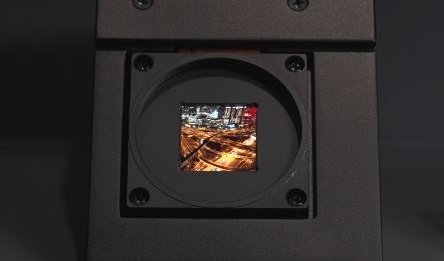
What Jennifer Did Review
What Jennifer Did is available to stream now on Netflix.
As our current era of peak true-crime television continues, I think we’ve arrived at a point where streaming services and documentarians should ask themselves: Does every sordid death, disappearance, or scam warrant being rehashed on screen? Case in point: Netflix’s latest contribution to the genre, What Jennifer Did. By police-blotter standards, the invasion of Vietnamese immigrants Bich Ha, Huei Hann, and Jennifer Pan’s suburban Toronto home has all the necessary ingredients for a gasp-worthy doc. There are control issues between parent and child, a secret relationship that ignited obsessive behavior, and a clumsy murder-for-hire plot. Yet in the hands of writer/director Jenny Popplewell – who did a far better job with American Murder: The Family Next Door – this case is scrubbed of all tension, consequential cultural context and, most unsatisfying of all, a clear message of closure.
Popplewell’s doc is grounded in police accounts of the botched breaking-and-entering that left Bich Pan dead, and crime reporter Jeremy Grimaldi’s 2016 book on the case, A Daughter’s Deadly Deception: The Jennifer Pan Story. Initially, What Jennifer Did hits the ground running with a gripping cold open using 911 audio of a frantic Jennifer Pan reporting the active break-in. Cutting together noir-style reenactments with police interrogation recordings, Popplewell and cinematographer Christopher Titus King set the stage for a potentially provocative story of lies and deception… then never make good on it.
What ensues is a bland and ultimately shallow exploration of the Pan family, their hidden strife, and the copious secrets Jennifer kept from her strict immigrant parents. Rather than relying on an omnipotent narrator voice, Popplewell instead interviews a handful of detectives to explain the details of the case and how the investigation unfolded over the span of 14 days. They’re a low-energy lot, lacking any standout personality who brings some life, or even potent empathy, to the exposition. It’s all Sgt. Joe Friday-style “just the facts ma’am” exposition dumps from top to bottom, and that makes for a very dry and unemotional watch.
They’re a low-energy lot, lacking any standout personality.
Beyond the cops, only three character witnesses speak about the family on camera: neighbor Hong Ngo; Nam Nguyen, a former high school friend of Jennifer’s; and Jennifer’s long-time piano teacher, Fernando Baldassini. To be fair, if they weren’t included, What Jennifer Did would be even colder, but it isn’t enough. Their perspectives paint the most consequential picture of what went on in the Pan house: Bich and Hann were overprotective, high-pressure parents who put an unwilling Jen in front of a piano at the age of four, and had a laundry list of aspirational expectations of their daughter.
The turning point arrived in high school when Jen fell for Danny Wong, the local pot dealer and fast-food joint underachiever. While they dated for seven years, Wong was never welcomed into the Pan home and eventually became the source of a bitter ultimatum from Hann: “It’s either him or us.” Her lack of autonomy prompted a series of decisions that went from bad to worse and eventually led to Jen’s mother being murdered and her father getting shot in the face. (He would survive.)
There’s a lot of rich story potential wasted here due to poor pacing and a lack of more varied and humanizing points of view. When the first major twist of a 90-minute doc arrives at the 40-minute mark, it really hampers dramatic momentum. Popplewell pads the run time with long, uninterrupted stretches of interrogation footage, which gets tiresome.
By the last act, the lack of participation from Jen, Danny, or any other of their fellow defendants becomes impossible to ignore. Jen’s story is being told by inherently biased cops who don’t make any room for nuance. And while that’s important for getting the victims the justice they deserve, it’s less effective when conveying the whys behind Jen’s choices. While Jen is certainly responsible for her actions, the doc treats her story as if it existed in a vacuum, without consideration for the complex psychological and cultural issues surrounding it.
Even more frustrating is the last act, which rushes through the discovery of Jen’s diary (which provides some insight into her obsession with Danny), how her father’s recovery factored into the case, and an oblique and confusing text plate about the case’s current, unresolved status that makes the entire thing seem premature. In the end, What Jennifer Did makes a strong argument for being more discriminating with how you feed your true-crime habit – at least until you can expect the same level of quality control from Netflix.







